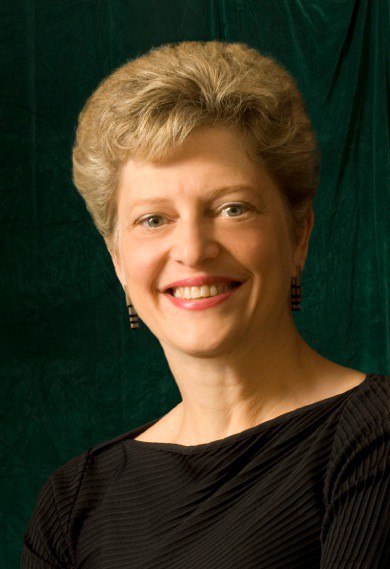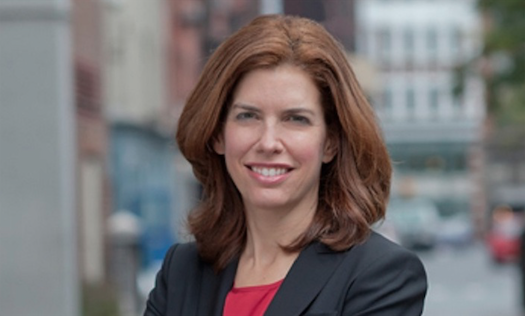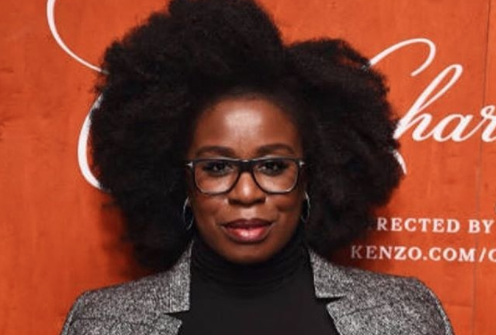The following is an excerpt from Carey Perloff’s memoir “Beautiful Chaos: A Life in the Theater.”
Much has been written about the paucity of female voices in the contemporary theater, and about how rarely stories by and about women dominate. Yet it was only in the process of writing this book that I began to realize how long it actually took me to stop playing at being a man and to acknowledge my own personal point of view on the world and on the work. The juggling act required of female artists in the theater, particularly those in positions of authority, is acute, and our failures are often seen as failures of our entire gender. We have little power to fall back on.
One of my first experiences as a young director came back to haunt me: When I returned from England to the United States in 1981, I brought back a pile of plays I wanted to direct, including Steven Berkoff’s classically inspired Greek, which I managed to persuade LA Theatre Works to let me stage. When Berkoff himself arrived on the scene two weeks into rehearsal, after I had cast, designed, and prepared the entire production, I was suddenly relegated to driver and junior acting coach, while the great man took over and directed his play. The producer said nothing. I remember Berkoff asking me in extremely patronizing tones whether I would like to warm up the cast before he began work. His behavior was never questioned; I was simply supposed to be a good girl, accept the authority of the great man, and support his wishes. I realized then that I could never take for granted that it would be assumed I knew what I was doing. I would have to prove that, again and again.
In the early days at the [American Conservatory Theater (ACT)], I was often quizzed about why my choice of repertoire had a “feminist agenda,” when I knew full well that if I did a season of Mamet and Shakespeare, no one would ever accuse me of having a male agenda. I watched female students in our school struggle to take center stage, and I thought long and hard about power and how uneasily it is granted to women. I also learned how women personalize failure, and how hard it is for us to be resilient in the face of a doubting culture that rarely believes we have it in us to succeed at the highest levels.
I have given a lot of thought to the live/work conflict of working mothers in the theater, as I try to support my younger female staff members in their efforts to raise children on the schedule and uncertainty of a theatrical life. When I look into their eyes, I remember the incredible exhaustion of trying to get through a day that often begins at dawn with tearful babies and ends at midnight with tearful actors after a rocky tech rehearsal or first preview.
So many times during those early years, I felt like a guilty failure for leaving home after dinner to go back to the theater while my toddler son stood on the front porch and howled with his arms stretching out toward my disappearing car (a true drama queen, he!). Many evenings I would call my own mother in tears and worry that my children would begin to think that the nanny was their mother. (“Don’t worry, they’ll figure it out,” she always reassured me.) If I hadn’t had as my own role model a mother who worked throughout my upbringing and managed to be remarkably present and engaged as a mother at the same time, I’m not sure I would have attempted it. I kept her good humor at the back of my mind on the occasions of maternal failure, when in my haste I sent Lexie to the Jewish Community Center preschool with a ham sandwich for lunch (and received a note back in her lunchbox alerting me to my faux pas) or missed her starring role in the Shabbat service while other mothers turned up with homemade challah. (“Just tell them you don’t compete on that level,” my mother was fond of advising me.)
Attempts to separate my roles as mother and artistic director [at ACT] were rarely successful and often yielded comic results, as when I went to a photo shoot for “Hecuba” wearing an expensive borrowed “Grecian” gown and proceeded to lactate all over it because I hadn’t nursed Nick on time.This was the same small boy who had been in utero and ready to emerge while we were casting our epic production of “Angels in America”; my casting director, Meryl Shaw, famously called me between contractions while I was in labor to make sure that she could issue offers to the actors before I gave birth. So it went.
In the days before cell phones, it was especially hair-raising; I still remember with horror a board retreat during my first season, in which I was being excoriated for The Duchess of Malfi, when I suddenly realized there was no one to pick up Lexie from child care at six o’clock; unable to reach Anthony, and panicking that my sweet three-year-old daughter would be left wandering on Arguello Street, I interrupted the meeting to find a pay phone and beg my assistant, Larry, to go fetch her, earning the opprobrium of both my board and the JCC for months afterwards. Now that my children have grown up, it is almost impossible for me to figure out how I and they managed to survive those years in one piece, but we did.
Both of my children were weaned on the theater and grew up within its institutional embrace, riding the waves of euphoria and despair with their mother almost instinctively. (I am somewhat ashamed to admit that whenever an obituary was read at our breakfast table, the children would immediately inquire whether that person was a member of ACT’s Prospero Society, the group of donors who commit planned gifts to the theater after their deaths.) I was constantly reassured by my friend Veronica’s dictum: “Just remember that the days are long, but the years are short.” My own counsel to young women in the field who get discouraged and are tempted to give up is that a career is long and children are young for a very short time. It’s worth sticking it out during those chaotic sleepless few years, because in the long run, if you stay with it, you may have a career that will sustain and nurture you later on.
Interestingly, I never thought about my struggles and compromises as “women’s problems”; I always thought they were my problems. I tried not to share these problems with anyone else, as clearly they were mine to solve and they only made me vulnerable to attack. It has only been in recent years that I have begun to pick my head up and realize that the challenges of being a woman in this field are serious and continue unabated. Indeed, few of the women directors I knew and admired in New York in the eighties (particularly those with children) have gone on to run major theaters (which one might have expected to be the trajectory, as it has been with our male colleagues), and I have slowly begun to understand the depth of the gender-disparity issue in the American theater.
Still, when ACT Executive Director Ellen Richard returned from a League of Resident Theatres (LORT) conference in the fall of 2012 and informed me that the percentage of women running LORT theaters had not increased in the past twenty-five years, I was completely taken aback. How could that be? There are huge numbers of women in the lower echelons of the theater — directors, writers, administrators. Why were they not making it to the top? The answer to this question is complex and will require serious study. Indeed, ACT recently entered into a partnership with the Wellesley Centers on Women to undertake comprehensive research on this subject.
Clearly there are a number of factors at play: For one thing, as I have already mentioned, having children is extremely challenging when you are living a life in the theater, a problem exacerbated by long hours and low pay. In addition, the two major search firms in charge of hiring artistic and executive directors in the United States are run by middle-aged white men, who perhaps replicate themselves in their search lists. (It astonished me that in June 2014, when the Women’s Project in New York was seeking a new artistic director, its board immediately contacted one of these two men to lead the search, instead of seeking out a female headhunter who might have had a better track record in recruiting female leadership.) Furthermore, I would hazard that boards unwittingly play a role in the paucity of women leaders.
This is a difficult thread to tease out, and leads to the larger and often thorny issue of nonprofit governance in the arts. American nonprofit theaters are led by boards of directors who are responsible for their fiscal health; because this is a country with little government subsidy for the arts, a theater rises and falls on the generosity and tenacity of its board. Theater boards tend to be comprised of individuals who have been successful in their communities and have a desire to give back by supporting a civic organization.These are not necessarily individuals with a deep knowledge of theater, yet in addition to fiscal oversight, the primary responsibility of a board of directors is to hire the leadership of the organization.
Carey Perloff is an award-winning playwright, theater director, and the Artistic Director of the American Conservatory Theater of San Francisco since 1992. Her memoir, “Beautiful Chaos: A Life in the Theater,” is published by City Lights. Buy the book here.







